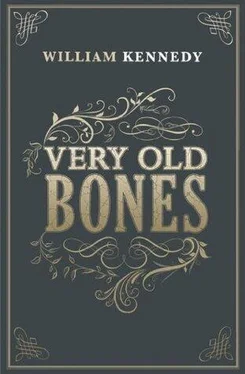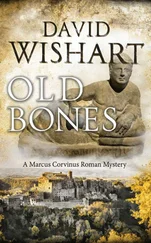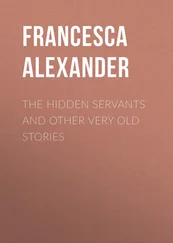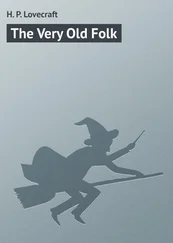“Why do you want to talk? Why don’t you make love to me?”
“I’m discovering what a noble creature you are. I understood it at the baths in Wiesbaden but I didn’t put the word to it until now. Noble. How you carried that remarkable body of yours, the way you sliced the water with your arms when you swam, the way you sat beside me on the bench in the steam room with all those other ignoble nudes, enveloped in clouds of love and heat, and you a presence as brilliant as the fire that heated the rocks. The way you looked when you lay on that cot behind the white curtain to take your nap, the erotic extreme of your arched back when I knelt by your cot and offered you worship.”
“Nobody ever made me explode the way you did then. If I said skyrockets you’d scold me for using a cliché. How did you learn so much about women?”
“I’ve been a lifelong student.”
“I wonder what will happen to us.”
“Everything,” I said.
“It must be valuable.”
“Very true. If it isn’t valuable it’s a malaise.”
“I don’t ever want to do anything to hurt you.”
“But you might.”
“You really think I might?”
“Giselle is an undiscovered country.”
“So is Orson.”
“No, not anymore.”
And this was true. I knew what was in store for me, felt it coming. I decided to blot it out and I pulled Giselle toward me.
“I am desperately weary of contemplating the fact that I have nothing to contemplate except the weariness of having nothing to contemplate.”
The sentence took form in my mind as I sat in the anteroom of the publishing house that had hired me to edit the pretentious subliterary drivel of Meriwether Macbeth. On the walls of the anteroom, whose floor was covered with a solid dark red carpet suitable for red-carpet authors, I looked up at the giant faces of writers whose work had been published by this house, and who had very probably trod this carpet, or these bare floorboards in pre-carpet days, hauling in their MSS in briefcase, suitcase, steamer trunk, wheelbarrow, or perhaps only jacket pocket if the author was a poet. A pantheon is what one might call the epiphany on these walls: Dreiser, Dos Passos, Yeats, O’Casey, Wharton, Frost, Joyce, Steinbeck, Sherwood Anderson. We or our work have all passed through these hallowed halls, they say; and we are what hallowed them. Which boards, which carpet will Orson Purcell hallow in his future? None at all should my present frame of mind continue, for I knew that line of mine — I am desperately weary et cetera — was hardly the mind-set required of hallowed hangables.
My editor was in conference but would be available soon, the receptionist said. I waited, trying to conjure a way out of the conversational cul-de-sac any statement about literary weariness would lead me into, and returned always to the magnificence of my morning romp on Giselle’s sacred playing fields. But it is written: one may not raise with one’s editor such uxorious delight unless one’s editor raises the subject first. Better to speak of the upcoming Hemingway, the Salinger phenomenon.
I walked to the rack of books on display for visitors, found the Cassirer, leafed in it, always wanted this. I’ll ask Walker for it. I went back to my chair, opened the book randomly to an early page, and read: “No longer can man confront reality immediately; he cannot see it, as it were, face to face. Physical reality seems to recede in proportion as man’s symbolic activity advances. Instead of dealing with the things themselves man is in a sense constantly conversing with himself.”
A book about me, I thought, and I put it in my pocket. The use of the word “symbolic” brought Malachi to mind, and also what Peter had said when I asked if Malachi really was a madman, as Mother had suggested.
“The man had madness thrust upon him,” Peter said. “The poor son of a bitch lost his cow to a Swedish cardsharp in a poker game and never got over it, blamed his wife, the devil, all Swedes, half his relatives. I never got the full story, just hand-me-down snatches from Sarah and what Molly got from Mama. As to madness in the family, Tommy’s not all there, but that’s not madness. And who’s to say I’m not nuts? We’re an odd lot, boy, we Phelans.”
I wasn’t sure whether I was included in that grouping; and I let it pass.
Walker Pettijohn, venerated editor, emerged from his inner sanctum with the durable particularities of his presence in place: the wild crown of the whitest of white hair, the face flushed not from booze but from the wrong shaving cream, the corporate stomach made round by the most exquisite restaurants in New York, the smile known round the world of international publishing, and the genuine glad hand that was as reassuring to me as the very light of day when I awoke at morning. The Pettijohn handshake drew me into the sanctum and toward the boar’s nest of books and paper that was the workspace of this legendary discoverer and shaper of American literature.
“Did your wife arrive?” he asked me.
“She did. Indeed.”
“And all is well?”
“Let’s not get into wellness,” I said. “She may go to work for Life magazine.”
“How fine.”
“Yes, perhaps.”
“Ah, you’re in your gloom still.”
“It’s gloomy, this life.”
“Meriwether Macbeth had a good time all his life.”
“All right, we’re around to that.”
“Are you ready to talk, or should we do this next week? I can wait.”
“Now is the time.”
“Then what I need is more of that wildness of Meriwether, that silliness, that absurd boyishness that kept him floating in that crazy, artistic, and erotic world of his. Peter Pan de Sade.”
“He wasn’t really erotic. He was just a satyr.”
“Same thing in print.”
“No. He’s an asshole.”
“Of course, that’s his charm.”
“Assholes are now bookishly charming?”
“This one is. He did whatever came into his head.”
“Infantile behavior to be cherished.”
“You know what I’m talking about, Orson. Don’t get remote. Use that brilliant brain of yours.”
“If I were brilliant I wouldn’t be dealing with this fool.”
“What I want is more of the stupidity of the man’s life, the empty nonsense, the ridiculous logic, the romancing of worthless women, the publishing of rotten poetry. I think of that masterpiece you tossed out: ‘Naked Titty Proves God Exists.’ ”
“My life is full of error,” I said. “I stand corrected.”
“We’re not trying to be objective here about poetic values, we’re revealing Macbeth for what he was, and if we do this book right the whole world will have a fine old time seeing through his façades.”
“They’re not worth seeing through.”
“Orson, you’re being difficult. You don’t want to quit this, do you?”
“Of course not. It’s my life blood.”
“If you say you’ll do it we’ll move on to more serious matters, like your own work. Shall we do that?”
“Let’s do that.”
Pettijohn reached into a pile of manuscripts and pulled out one bound in a yellow cover (after Giselle’s hair), and opened it, revealing handwritten notes clipped to the first page of the manuscript. He looked at me and I instantly understood that here would come a true judgment on my would-be work and my surrogate self. Now would come the revelation of my flawed brain, errant heart, rapscallion soul. The eradication of the future was at hand.
“This is absolutely brilliant,” Pettijohn said. “I love it.”
I was stunned.
“There’s a very original voice in these pages,” said Pettijohn, “and nobody writes dialogue better than you. You’re the best since O’Hara.”
Читать дальше












